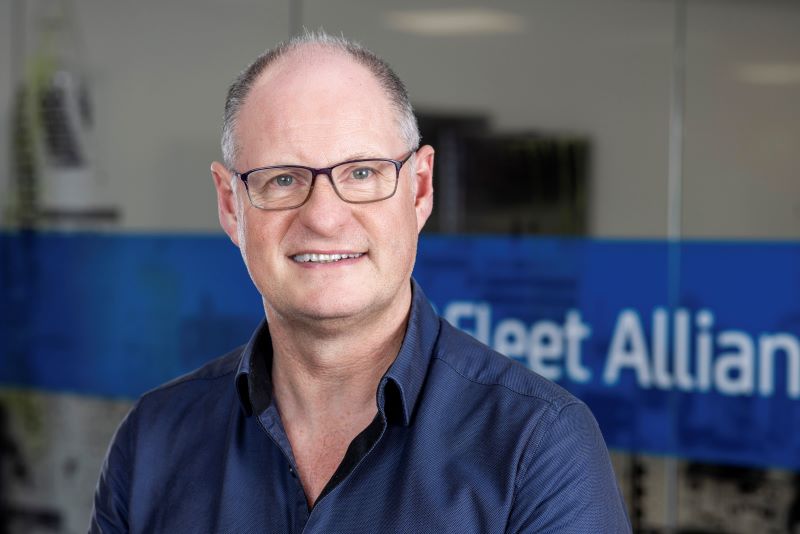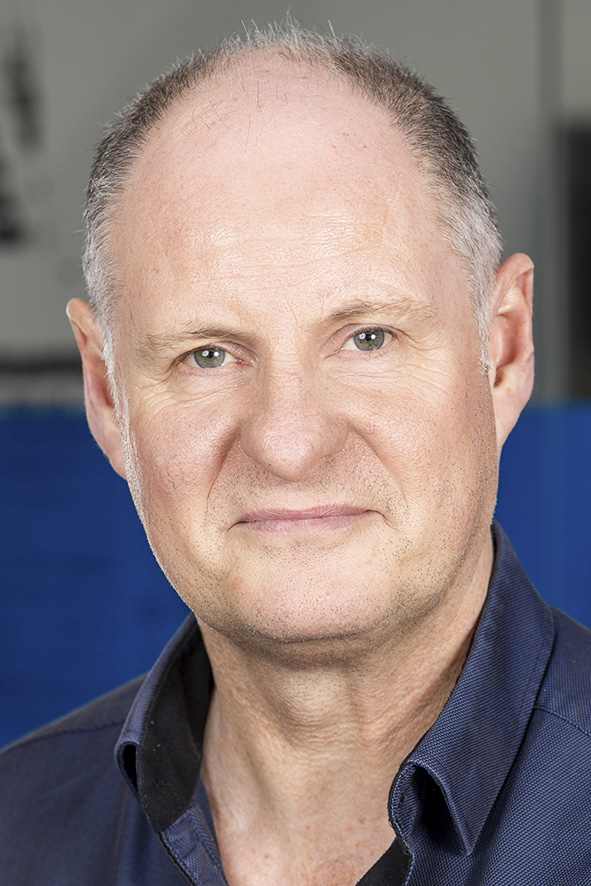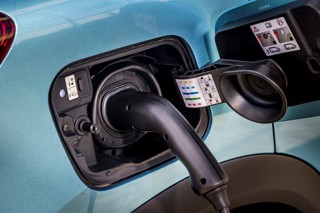An appetite among smaller businesses to reduce their carbon footprint is helping to fuel the growth of Glasgow-based vehicle funding and fleet management company Fleet Alliance.
A growing number of small-to-medium-sized enterprises (SMEs) are exploring the opportunity of providing low-emission cars to their employees, who seem equally as keen to do their bit for the environment, through salary sacrifice schemes.
These key trends have been identified by Fleet Alliance, which has seen orders for pure electric vehicles (EVs) and plug-in hybrid electric vehicles (PHEVs) exceed for more than half (52%) of all new car orders over the past 12 months for the first time.
The vehicle funding and fleet management specialist was started more than 20 years ago in Scotland’s largest city by Allen and Marjory Flynn.
As part of its ambitious growth plans, last year it recruited former Lookers duo Andy Bruce (pictured) and Nigel McMinn, as chief executive officer (CEO) and as chief operating officer (CEO) respectively, while managing director Martin Brown moved up to chair in a more strategic role.
Bruce believes his and McMinn’s background will help Fleet Alliance to achieve ‘substantial’ growth.
“We bring a few things to the Fleet Alliance table and put the company on a bigger stage in the wider automotive world,” he says.
An appetite among smaller businesses to reduce their carbon footprint is helping to fuel the growth of Glasgow-based vehicle funding and fleet management company Fleet Alliance.
A growing number of small-to-medium-sized enterprises (SMEs) are exploring the opportunity of providing low-emission cars to their employees, who seem equally as keen to do their bit for the environment, through salary sacrifice schemes.
These key trends have been identified by Fleet Alliance, which has seen orders for pure electric vehicles (EVs) and plug-in hybrid electric vehicles (PHEVs) exceed for more than half (52%) of all new car orders over the past 12 months for the first time.
The vehicle funding and fleet management specialist was started more than 20 years ago in Scotland’s largest city by Allen and Marjory Flynn.
As part of its ambitious growth plans, last year it recruited former Lookers duo Andy Bruce (pictured) and Nigel McMinn, as chief executive officer (CEO) and as chief operating officer (CEO) respectively, while managing director Martin Brown moved up to chair in a more strategic role.
Bruce believes his and McMinn’s background will help Fleet Alliance to achieve ‘substantial’ growth.
“We bring a few things to the Fleet Alliance table and put the company on a bigger stage in the wider automotive world,” he says.
“I spent 15 years with OEMs at the start of my career and spent the past 20 years at Lookers, which became a substantial business, so, between us, we have a good list of contacts.”
On joining Fleet Alliance, Bruce is revisiting some of those old auction company and trade contacts. He adds: “We won’t bring any silver bullets, but we can increase the pace of the business and broaden its reach. Martin and his team have built a fantastic business.”
Size and value of fleet
Currently, the company manages a fleet of 30,000 vehicles worth more than £1 billion and Bruce says: “We’re right in the middle of developing a five-year plan and we haven’t settled on numbers yet. But growth will be substantial.”
Expansion will come partly from Fleet Alliance’s new salary sacrifice scheme, which focuses on offering zero-emission cars to SMEs.
Although available to companies of all sizes, Fleet Alliance bosses believe its advantages of lower leasing costs, full maintenance, fully comprehensive insurance and the option to tailor lifestyle protection offer particular value to SMEs.
Salary sacrifice had been declining in popularity since 2017 when the Government introduced the optional remuneration arrangements (OpRA)
legislation which, effectively, removed its tax and national insurance contribution (NIC) efficiency as it meant an employee would be taxed on the greater of the value of the benefit or the salary they gave up.
However, an exemption for vehicles with 75g/km of CO2 or less – and the increasing numbers of EVs and PHEVs which fit into this category – has made it an attractive proposition again.
In December, Fleet Alliance appointed Mark Roberts to the newly-created position of salary sacrifice product manager.
Roberts joined from Zenith Intelligent Vehicle Solutions where he was, most recently, customer relationship director, responsible for both corporate and salary sacrifice sales.
“Pure EVs and PHEVs together accounted for 52% of all new car orders for the whole of last year – and that’s the first time they’ve been in a majority,” Bruce says. “In our corporate business, it was 59% of new car orders.”
Fleet Alliance also caters for the retail sector with its separate Intelligent Car Leasing and Intelligent Van Leasing businesses.
Bruce strongly believes a growing number of companies and individuals are keen to embrace a green agenda as well as meet the Government’s 2030 ban on the sale of new petrol and diesel-powered cars and vans.
“I’m hearing companies talk about ESG (environmental, social and corporate governance) more and more,” he says.
“They’re embracing the spirit of EVs, rather than just the letter of them and actively want to do the right thing for the environment. EVs are clearly a tangible demonstration of that.”

A win-win situation
This growing green appetite coupled with the attractive benefit-in-kind (BIK) rates for EVs is boosting the popularity of salary sacrifice, which Bruce describes as a “win-win situation” for both employer (with NIC savings and staff retention) and employees (who could save thousands of pounds a year compared with funding their own vehicles through a personal lease).
“It’s going viral; it just seems to have hit the wave. And it’s absolutely in our sweet spot, which is great,” says Bruce.
One issue for fleets embarking on electrification is not knowing how BIK taxation tables will look beyond 2024/25. The Government has been urged to reveal these around concerns that businesses and employees are entering into a four-year cycle with no indication of what the end rates will be.
Bruce remains optimistic rates won’t rise considerably, suggesting such a move would “throw a grenade into the Government’s whole policy”. He says:
“My view is that they (BIK rates) will go up, but I think it will be gradual. I think it’ll play out over a long period of time and will be digestible.”
Bruce believes it’s a lack of confidence that’s preventing many businesses from starting on the journey to fleet electrification.
“It’s a lack of confidence based on a lack of information,” he says. “We find that once we sit down with them and drill into the details of what it could look like, then you can overcome that lack of confidence and get businesses to commit. Everyone I speak to who has an electric car says that fears of running out of charge are unfounded. They don’t even think about that now, it’s about planning and doing things in a different way.
“I believe we’ll get ranges of 600-700 miles within five years and EVs will go beyond what petrol and diesel engines can offer.”
Fleet Alliance works with the British Vehicle Rental & Leasing Association (BVRLA) to lobby Government on areas such as a public infrastructure, company car tax rates, grants available to business to help with buying EVs and charging facilities.
It has also signed up to the Climate Group’s EV100 initiative (a global coalition of businesses dedicated to providing zero-emission fleets by 2030) and to the Eco Three Partnership, which provides companies with a platform to manage their sustainability agenda.
Another area for growth could be forming partnerships or collaborations with other players in the industry, perhaps for subscription-based services.
Bruce explains: “Nigel and I are used to such partnerships in our previous roles. And things are changing – the lines between leasing, rental and usership are beginning to blur. The concept of mobility is changing and this type of business model can sit right in the middle of that.”
However, he notes some confusion around what sort of subscription-based models can work in the automotive world.
“There’s work to be done on what some of these things mean. What is a subscription? And how does it differ from a lease or a rental? They’re shades of the same colour and we’ve yet to properly define its meaning,” he adds.
“Also, how do you price a subscription? Cars have a predictable depreciation curve, which is most heavy is year one, and less so in years two and three. It’s quite easy to set a three-year rental because you know what it costs new, and you know what it’s likely to be worth at the end of year three. It’s these things we need to investigate.”
Component shortages
On the subject of current vehicle supply problems caused by global semiconductor and component shortages, Bruce says: “We expect the shortage to continue throughout 2022 and impact on new vehicle supply. But recent discussions with a number of manufacturers suggest they should ease from around the middle of the year, before returning to something approaching normality at the start of 2023.”
However, he believes the situation has helped fuel the growth of EVs as manufacturers focus their attention on models which would most help them hit their carbon targets. Bruce says:
“As a result, we have seen a dramatic increase in the EVs now available and coming onto the market as manufacturers move away from internal combustion engine (ICE) technology.”
For some customers, contracts have been formally extended by a year and for others they are rolling over informally on a month-by-month basis.
While Bruce accepts there are leasing brokers in the market that perform the same role as Fleet Alliance, but believes the company differs in that it also “offers full services that a major leasing company would, in terms of fleet management and consultancy”.
It offers its own cloud-based fleet management and reporting system called e-Fleet.
Fleet News' content:
> Interested in comparing electric vehicle data? Check out our EV tool.
> Interested in ensuring the efficient use of EVs. Check out our dedicated editorial sections: Insight & policy | EV news | Charging & infrastructure | Costs & incentives | Benefit-in-kind | EV case studies | EV road tests
Login to continue reading.
This article is premium content. To view, please register for free or sign in to read it.





















Login to comment
Comments
No comments have been made yet.